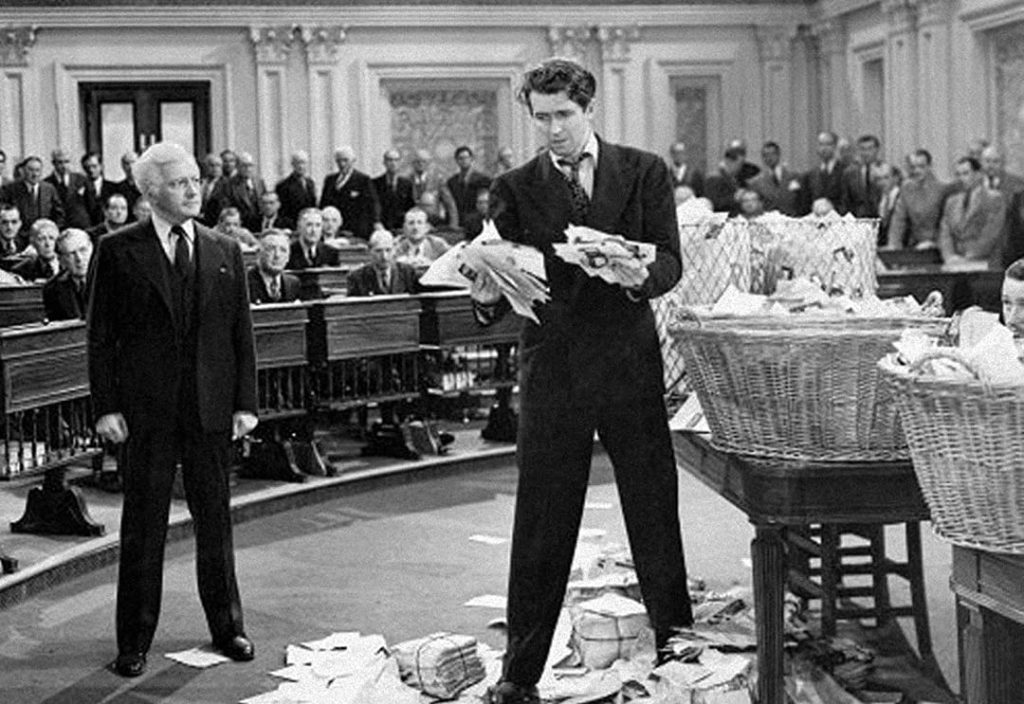“Radical in its inanity”

Good Ezra column on the indefensible idiocy of the Senate’s anti-democratic rules:
In 2012, Steven Teles, a political scientist at Johns Hopkins University, published a paper arguing that American public policy had become defined by kludges. “The term comes out of the world of computer programming, where a kludge is an inelegant patch put in place to be backward compatible with the rest of a system,” he wrote. “When you add up enough kludges, you get a very complicated program, one that is hard to understand and subject to crashes. In other words, Windows.”
Or, the Senate. The modern use of budget reconciliation is a kludge. The institution has become paralyzed by the filibuster and rather than rewriting its rules to solve that problem, senators have instead patched it through budget reconciliation. The Senate gets just enough done that no one can say it is actually impossible to pass big bills through the body. But budget reconciliation narrows the range of problems Congress can solve, the number of bills it can pass and the policy mechanisms it can use. No one would ever design a legislative body that worked this way, but this is how the Senate has come to work, one kludge on top of another. “For any particular problem we have arrived at the most Gerry-rigged, opaque and complicated response,” Teles wrote. That is both an apt description of today’s Senate and of the kind of policy budget reconciliation produces.
All of this is a choice. Every Senate rule can be changed by a simple majority vote. A simple majority could end or reform the filibuster — as we saw when Democrats ended it for most executive branch nominations and most judicial nominations in 2013, and when Republicans ended it for Supreme Court nominees in 2017. The details quickly get complicated, but a simple majority of senators could vote to loosen some of the limits on budget reconciliation, as Senator Bernie Sanders, the new chair of the Budget Committee, has suggested. The Senate is bound by nothing but its own convictions.
But this is a Senate that, collectively, has no convictions. It does not believe enough in the filibuster’s 60-vote threshold to simply abide by it. It does not believe enough in passing bills by a simple majority to make that the standard. It is the self-styled moderates, like Manchin and Sinema, who freeze the institution in dysfunction, but there is nothing moderate about the modern Senate: It is radical in its inanity, a legislative chamber designed by dadaists.
“Democrats have an opportunity to restore our democracy and deliver on the promises they campaigned on,” the Rev. Dr. Stephany Rose Spaulding, founder of Truth and Conciliation, told me by email. “But they can’t do that without breaking down structural barriers to progress — that starts with eliminating the filibuster. If we allow the filibuster to block voting rights, gun violence prevention, Covid relief and more, we’re sending a clear message to millions of voters that their votes and voices don’t count in our democracy.”
I would love someone to ask Manchin or Sinema directly why it makes sense to allow upper-class tax cuts with 50 votes require 60 votes to pass voting rights legislation. None of this makes any sense; the filibuster is a transparently bad an indefensible rule, and a majority of senators keeps doing ad hoc workarounds rather than getting rid of the goddamned thing. And let’s be clear that every Republican gerrymander that denies voters a democratic choice and every Republican vote suppression bill will hang on every Democratic senator who refuses to eliminate the filibusterer if Congress is unable to pass voting rights legislation.


